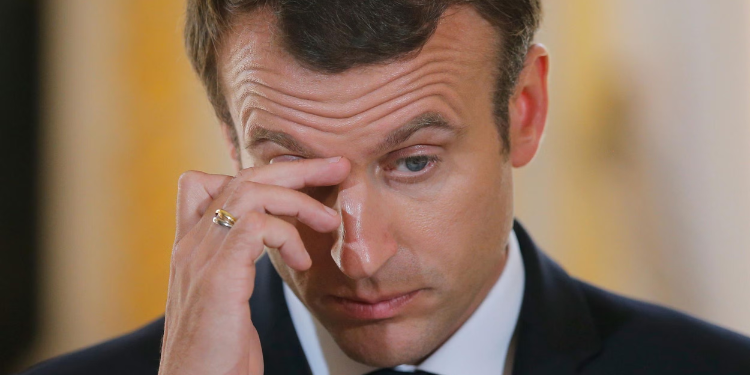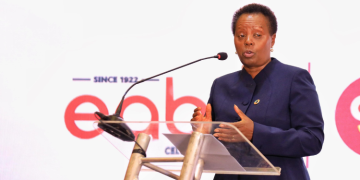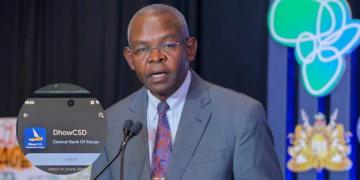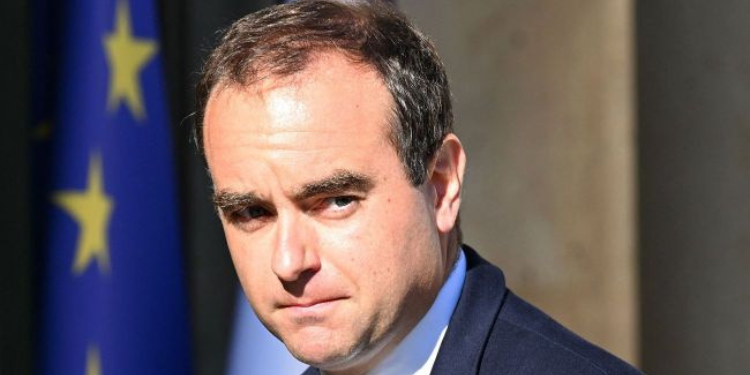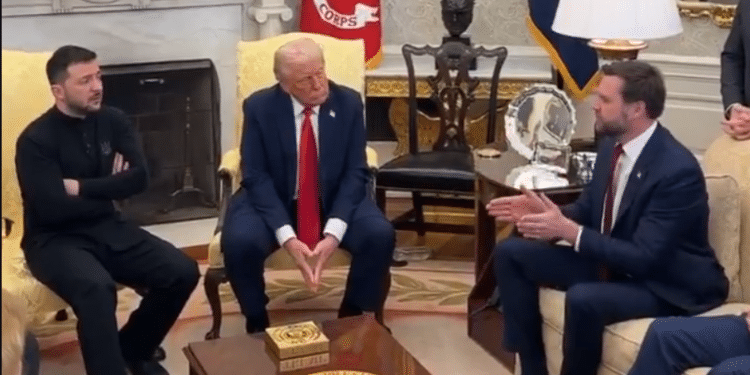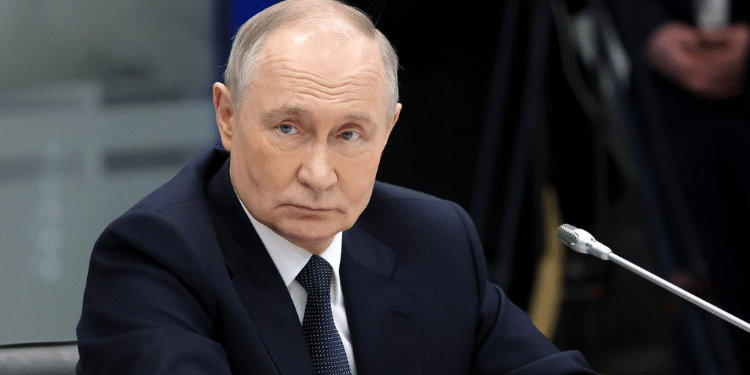France’s Prime Minister Sébastien Lecornu has resigned, less than four weeks after taking office, deepening the political crisis facing President Emmanuel Macron’s government.
The resignation, confirmed by the Elysée Palace on Monday, October 6, plunges France and Emmanuel Macron deeper into political uncertainty, marking the fourth prime ministerial departure in just over a year.
Sébastien Lecornu
Lecornu, 39, submitted his resignation early Monday following days of internal friction within the ruling coalition and mounting opposition in the National Assembly.
Lecornu was appointed by President Emmanuel Macron on September 10, 2025, to bring stability to a government facing numerous challenges.
However, his time in office was brief and marked by intense pressure from both within and outside the government.
Lecornu had been Macron’s defense minister and was seen as a loyal and experienced choice.
Cabinet disputes, resistance to fiscal reforms, and political manoeuvring from rival factions quickly undermined his authority.
Despite initial backing from Macron’s Renaissance party, Lecornu failed to secure reliable legislative support.
Efforts to build consensus on the 2026 budget collapsed last week, signaling the loss of confidence that ultimately led to his exit.
Struggles Within Macron’s Majority
Lecornu inherited a parliament without a clear majority — a challenge that has defined Macron’s second term.
The National Assembly remains split among centrists, conservatives, and a resurgent far right. Each faction has blocked government proposals, weakening France’s legislative machinery.
Lecornu’s attempt to blend continuity with renewal backfired.
His decision to retain several key ministers from former Prime Minister Gabriel Attal’s government angered reformists demanding a reshuffle.
At the same time, left-wing and nationalist blocs rejected his budget outline, accusing him of pursuing Macron’s unpopular economic agenda.
The breakdown left Lecornu with no parliamentary allies strong enough to pass key reforms.
Reports from French media on Sunday suggested he had offered to resign after heated weekend consultations with the president and senior ministers.
Limited Options for President Emmanuel Macron
President Macron now faces a narrow set of choices. He must either appoint a new prime minister capable of surviving a confidence vote or risk triggering another wave of political paralysis.
Possible successors include Economy Minister Bruno Le Maire, Interior Minister Gérald Darmanin, and former Prime Minister Élisabeth Borne, all experienced but divisive figures.
French political analysts say Macron may also consider forming a caretaker administration to handle essential business while avoiding immediate confrontation with parliament.
Lecornu’s resignation underscores the instability that has defined Macron’s second mandate.
Since losing his absolute majority in 2022, Macron has struggled to enact reforms without resorting to executive decrees.
His use of Article 49.3 to bypass parliament has drawn accusations of authoritarianism and provoked months of street protests.
For now, Lecornu will remain in a caretaker role until a successor is appointed.
The Élysée stated that consultations with party leaders would begin immediately, but no timeline has been provided.
Rising inflation, labour unrest, and stagnant growth continue to strain public trust in the French political establishment.
Also Read: Ukraine Lacks Capability to Launch Tomahawk Missiles Against Russia, Experts Reveal
Macron’s next decision, whether to seek compromise, reshuffle again, or gamble on fresh elections, will shape the remainder of his presidency.
Opposition leaders, including Marine Le Pen and Jean-Luc Mélenchon, have already called for early parliamentary elections, arguing that Macron’s government “no longer reflects the will of the French people.”
Global Reaction
Reactions to Lecornu’s resignation came swiftly from major capitals.
Also Read: Russia Caught Flat-Footed as Ukraine’s 59th Brigade Shoots Down Mi-8 Helicopter
Germany called for political stability in France, emphasizing the need for continuity in European leadership.
Italy described the situation as concerning but expressed confidence in France’s democratic institutions.
The United States reaffirmed its partnership with France within NATO and broader global alliances.
Follow our WhatsApp Channel and X Account for real-time news updates.
